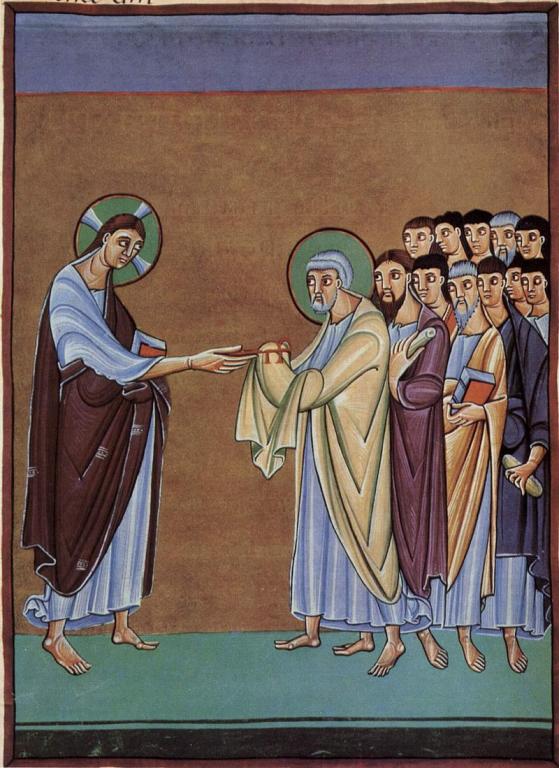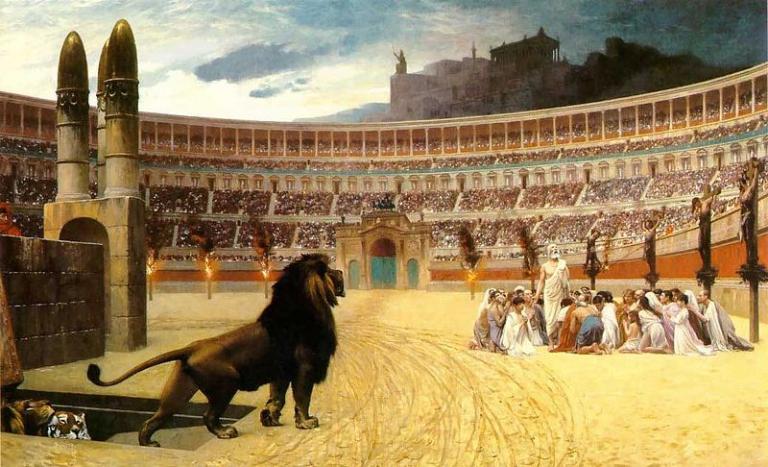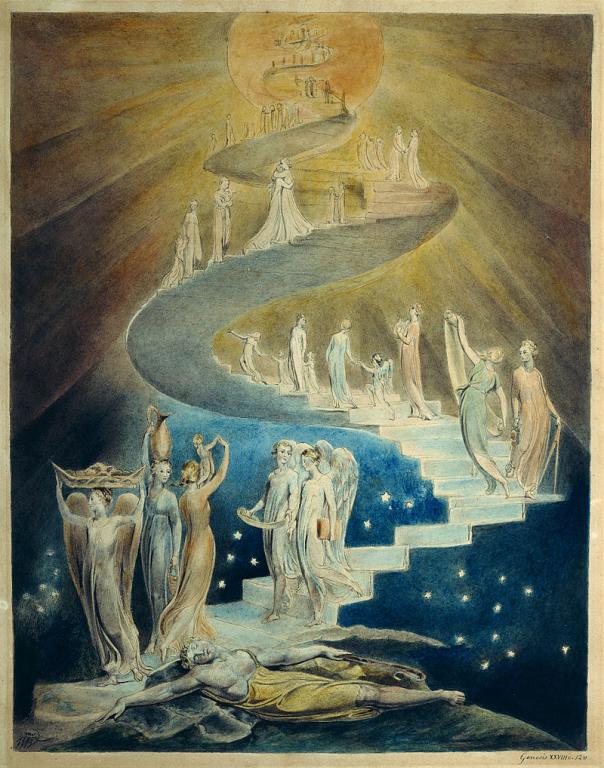
(Wikimedia Commons public domain photograph)
It’s impossible to improve upon this passage by commentary but, for the sake of freshness, I offer a likely unfamiliar translation (by J. B. Phillips) of a simple and very familiar text:
“Now I am giving you a new command—love one another. Just as I have loved you, so you must love one another. This is how all men will know that you are my disciples, because you have such love for one another.”
The test of discipleship isn’t actually, it turns out, whether you accept the Nicene doctrine of the Trinity, despise Joseph Smith, or reject the Book of Mormon.

Compare Matthew 28:7, 10; Mark 16:7; Luke 22:39; John 16:32; 18:1; 21:15-17
One of the signs of the truthfulness of the gospel accounts is their forthright portrayal of what is usually regarded as the very human weakness of Peter, despite his subsequent reputation as the “Rock” and a “pillar” of the church.
There’s no attempt to whitewash or glorify him.
Notice that all four gospels — John and the three synoptics — are represented here.

“The Christian Martyrs’ Last Prayer,” by Jean-Léon Gérôme (ca. 1883)
Wikimedia CC public domain image
a) Jesus seems to be speaking metaphorically in this passage, but his disciples misunderstand and take him literally.
b) He’s definitely predicting an imminent time when society and dominant opinion will be hostile to the ancient Church.
c) We should never have expected that society and dominant opinion would be friendly to the modern, restored Church.

Wikimedia Commons public domain
I’m sorry. I can think of no commentary right now that would be better, richer, more theologically profound, or more comforting than this text itself.
But at least I can give it to you in a different translation — the one by J. B. Phillips; above is a link to the King James Version — hoping that the sheer power of the passage will hit you afresh:
14 1-4 “You must not let yourselves be distressed—you must hold on to your faith in God and to your faith in me. There are many rooms in my Father’s House. If there were not, should I have told you that I am going to prepare a place for you? It is true that I am going away to prepare a place for you, but it is just as true that I am coming again to welcome you into my own home, so that you may be where I am. You know where I am going and you know the road I am going to take.”
5 “Lord,” Thomas remonstrated, “we do not know where you’re going, and how can we know what road you’re going to take?”
6-7 “I myself am the road,” replied Jesus, “and the truth and the life. No one approaches the Father except through me. If you had known who I am, you would have known my Father. From now on, you do know him and you have seen him.”
Jesus explains his relationship with the Father
8 Then Philip said to him, “Show us the Father, Lord, and we shall be satisfied.”
9-14 “Have I been such a long time with you,” returned Jesus, “without your really knowing me, Philip? The man who has seen me has seen the Father. How can you say, ‘Show us the Father’? Do you not believe that I am in the Father and the Father is in me? The very words I say to you are not my own. It is the Father who lives in me who carries out his work through me. Do you believe me when I say that I am in the Father and the Father is in me? But if you cannot, then believe me because of what you see me do. I assure you that the man who believes in me will do the same things that I have done, yes, and he will do even greater things than these, for I am going away to the Father. Whatever you ask the Father in my name, I will do—that the Son may bring glory to the Father. And if you ask me anything in my name, I will grant it.
Posted from Bourton-on-the-Water, Gloucestershire, England











